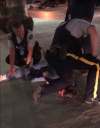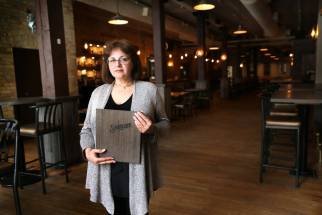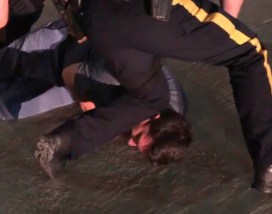Conditional discharge for 2019 knee-on-neck police incident
Read this article for free:
or
Already have an account? Log in here »
To continue reading, please subscribe:
Monthly Digital Subscription
$0 for the first 4 weeks*
- Enjoy unlimited reading on winnipegfreepress.com
- Read the E-Edition, our digital replica newspaper
- Access News Break, our award-winning app
- Play interactive puzzles
*No charge for 4 weeks then price increases to the regular rate of $19.00 plus GST every four weeks. Offer available to new and qualified returning subscribers only. Cancel any time.
Monthly Digital Subscription
$4.75/week*
- Enjoy unlimited reading on winnipegfreepress.com
- Read the E-Edition, our digital replica newspaper
- Access News Break, our award-winning app
- Play interactive puzzles
*Billed as $19 plus GST every four weeks. Cancel any time.
To continue reading, please subscribe:
Add Free Press access to your Brandon Sun subscription for only an additional
$1 for the first 4 weeks*
*Your next subscription payment will increase by $1.00 and you will be charged $16.99 plus GST for four weeks. After four weeks, your payment will increase to $23.99 plus GST every four weeks.
Read unlimited articles for free today:
or
Already have an account? Log in here »
Hey there, time traveller!
This article was published 20/12/2021 (1449 days ago), so information in it may no longer be current.
An Alberta man has received a conditional discharge for assaulting two police officers and another person in a case highlighted by video showing one officer pinning his knee on the man’s neck for four minutes.
Nathan Lasuik, 42, admitted to assaulting the trio outside James Richardson International Airport on Aug. 1, 2019.
However, he argued police used excessive force in restraining him, violating his Charter rights to life, liberty and security of the person.
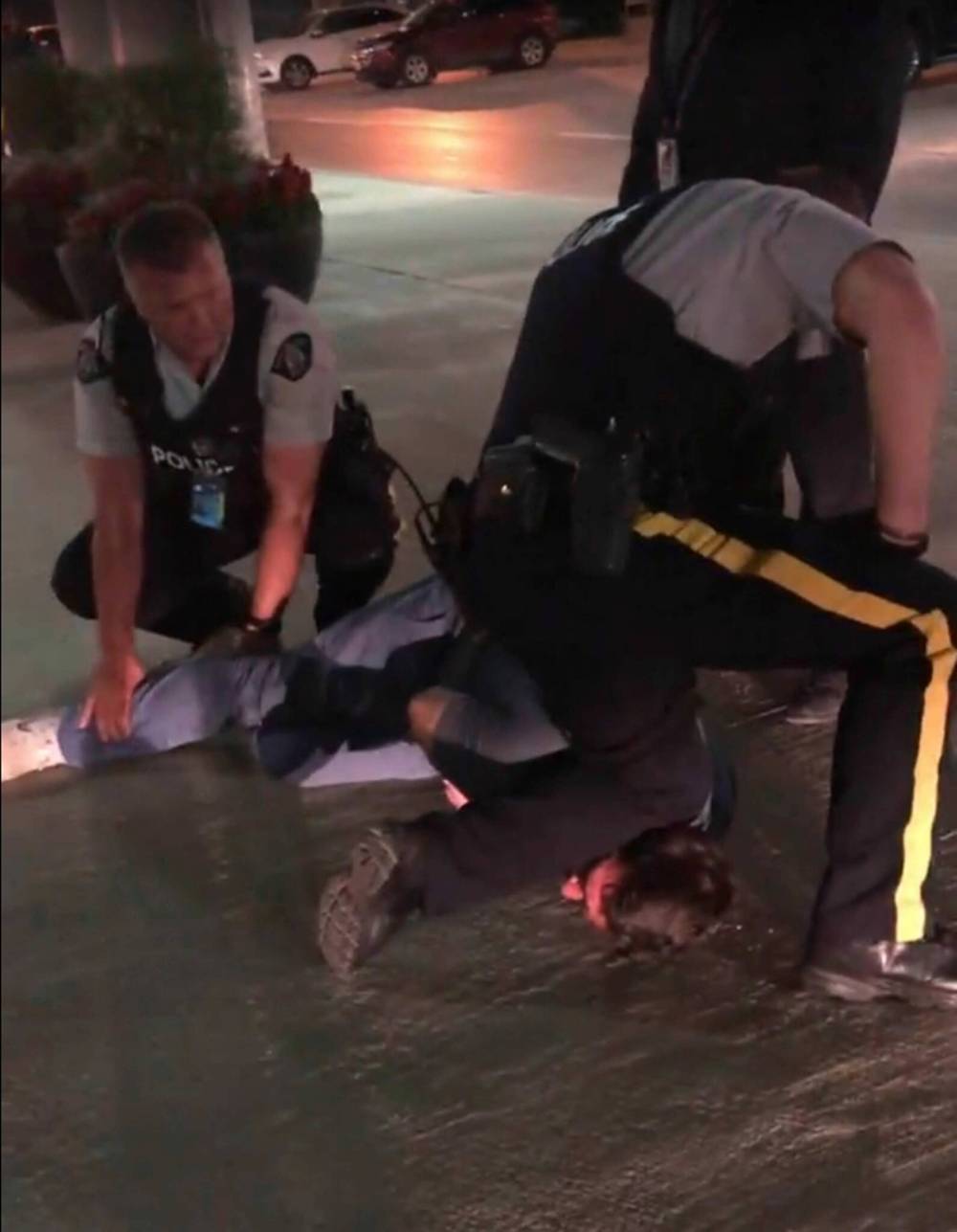
“I think it’s a given that normally offences like this… do not attract a discharge,” provincial court Judge Dave Mann said Dec. 17. “Based on everything that happened that day, I do find that a discharge would be appropriate and would not be contrary to the public interest in this case.”
Mann ruled the officers did violate Lasuik’s Charter rights but rejected an argument by defence lawyer Mitch Merriott the charges be stayed outright. Instead, Mann granted Lasuik a conditional discharge that included one year of supervised probation.
Lasuik testified at trial he had been drinking heavily prior to his flight landing, as he was an anxious flyer and suffered from post-traumatic stress disorder.
Airport security video played in court at trial in August showed Lasuik getting into a verbal dispute with a man outside the terminal and then assaulting him.
Minutes later, after police arrived to investigate, Lasuik struck RCMP Const. Eric Gerein in the face before retreating to his father’s waiting car. After Gerein and Const. Slobodan Dukic pulled Lasuik from the car, Lasuik kicked Gerein in the groin and the two officers took him to the ground.
A cellphone video recorded by Lasuik’s father and provided to court showed Gerein pinning the side of Lasuik’s neck to the ground with his knee, while Dukic pinned his midsection and an airport manager held his legs. Lasuik’s hands were cuffed in front of him and underneath his body.
“I’m gonna die,” Lasuik can be heard screaming on the video. “Let me breathe.”
“You’re breathing,” Gerein shouted in response. “When you’re talking, you’re breathing.”
Lasuik continued to plead for Gerein to remove his knee from his neck, to which the officer responded: “Please nothing. You opened your mouth one too many times… Aw, now you’re a tough guy, aren’t you?”
Gerein’s knee remained on top of Lasuik’s neck for at least four minutes before Winnipeg police arrived and he was released.
Pinned to the ground, with his hands cuffed underneath him, Lasuik had “very little” ability to assault anyone, Mann said.
“I do accept, based on his testimony and his actions during the time on the ground… that he thought he was in medical distress,” the judge said.
“I am mindful though, that police officers are human beings and it would be unrealistic to think that they would not get frustrated or upset at a suspect when they are kicked in the groin,” he said. “Almost anybody would be angry or annoyed.”
A police use-of-force expert testified at trial there was no acceptable reason for Gerein to have put his knee on Lasuik’s neck.
“I don’t know of any training that officers are trained to go across the neck,” said Sgt. Kelly Keith of the Ste. Anne police department. “Since 1988, I have not been taught or shown a technique to go across the neck… It’s a dangerous area. The risk of injury is much higher.”
Gerein testified he put his knee underneath Lasuik’s shoulder blades, as he was trained. Shown the cellphone video, he said his knee must have “rolled” onto Lasuik’s neck as he struggled.
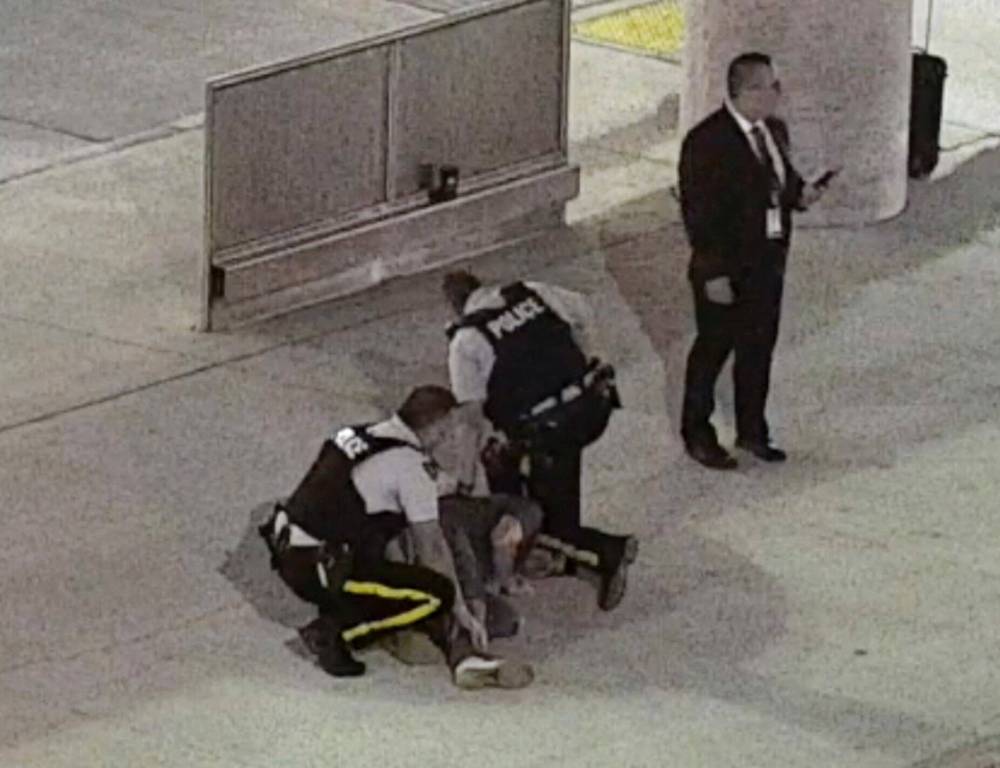
In a written victim-impact statement provided to court Dec. 17, Gerein said his mental and physical health has deteriorated since the incident and his career has been put in jeopardy.
“The edited video clip that was sent to various media outlets and (Lasuik’s) attempts to show my actions in a negative light has had far-reaching implications on my health, career and family,” said Gerein, 54.
“This video has led to unwarranted threats of career repercussions,” he said. “I’ve been cut off from the support of my peers. I live in a constant state of suspiciousness and depressed mood.”
Mann said there was no evidence the cellphone video had been edited.
After learning about the cellphone video, via a Free Press report, the RCMP referred the matter to police watchdog, the Independent Investigation Unit of Manitoba.
“I found the video very disturbing. Hearing a man clearly informing police officers that he cannot breathe is all too present in our collective consciousness,” Manitoba RCMP assistant commissioner Jane MacLatchy said in a written statement in August.
“Let me be very clear: the RCMP does not teach nor endorse any technique where RCMP officers place a knee on the head or neck.”
Lasuik’s arrest came 10 months before George Floyd died May 25, 2020, after then-Minneapolis police officer Derek Chauvin used a knee to pin the man’s neck to the ground for more than eight minutes, sparking international outrage and protests.
Chauvin was later convicted of murder and sentenced to 22.5 years in U.S. prison.
dean.pritchard@freepress.mb.ca

Someone once said a journalist is just a reporter in a good suit. Dean Pritchard doesn’t own a good suit. But he knows a good lawsuit.
Our newsroom depends on a growing audience of readers to power our journalism. If you are not a paid reader, please consider becoming a subscriber.
Our newsroom depends on its audience of readers to power our journalism. Thank you for your support.


